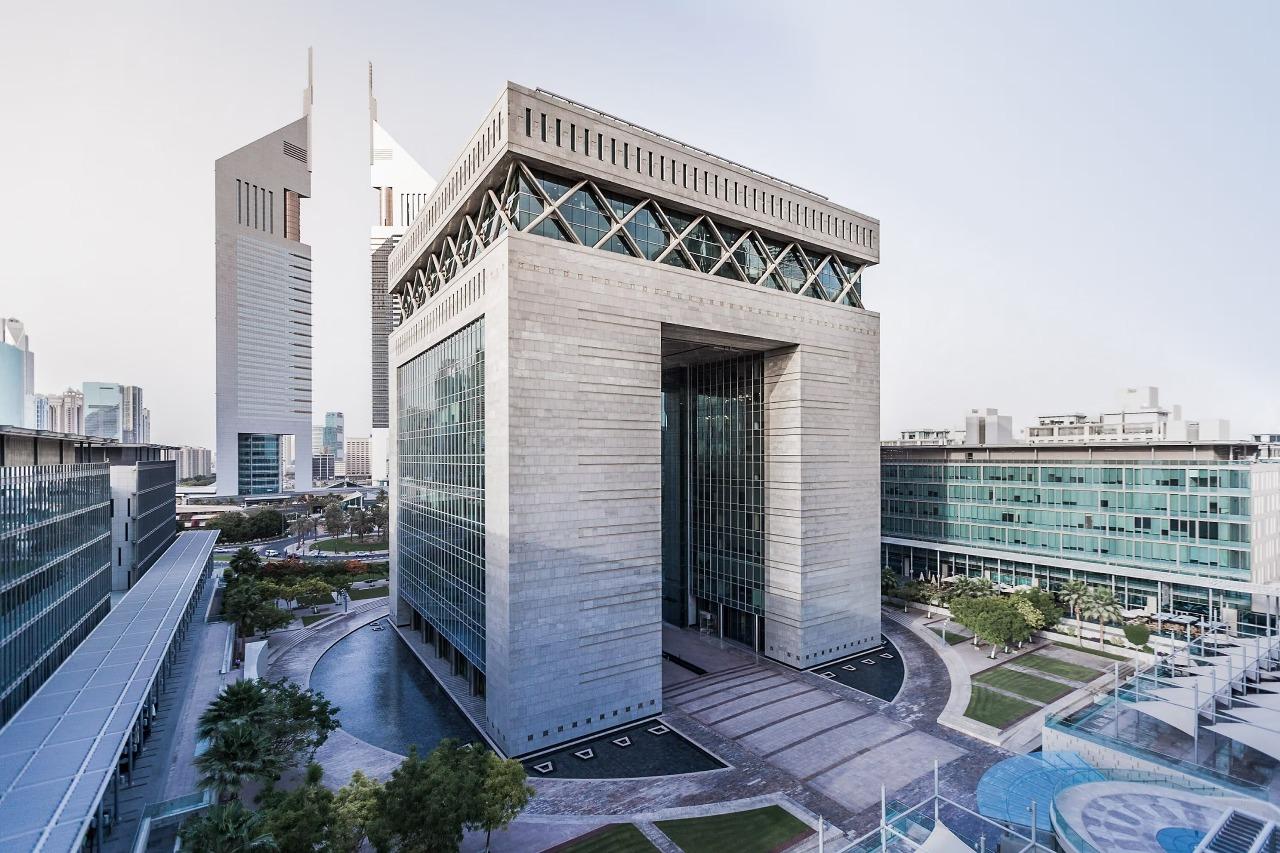The Fintech industry has undergone a significant transformation in the last decade. From Silicon Valley startups to billion-dollar companies, this niche intersection of finance and technology is reshaping how billions of people interact with money. With an estimated 3.5 billion users worldwide, fintech solutions have slowly become a part of everyday life.
Dubai has also become one of the major global fintech hubs. Dubai International Financial Centre DIFC Free Zone is the financial powerhouse of Dubai that is attracting fintech startups to the city. It is currently home to over 4,000 fintech startups with 1000+ registered in just 2023. Not only that, fintech startups have raised US$ 3.3 billion in global VC funds in the same year.
But how does it compare to established global markets like London, New York, Singapore, and Hong Kong? Let’s explore why DIFC might be the ideal choice for FinTech entrepreneurs.
Global FinTech Hubs: A Quick Comparison
Due to DIFC, Dubai is now one of the top 10 global fintech hubs in the world. Let us compare how the city fares out as compared to its top competitors:
| City | Size | CAGR | Total Startups | FDI (in bn) |
| San Francisco | 850+ | US$ 32 | ||
| London | 1,600+ | US$ 9.69 | ||
| New York | 1,600+ | US$ 48.1 | ||
| Singapore | US$ 7.8 bn | 7% | 1,500+ | US$ 12.8 |
| São Paulo | 1,000+ | US$ 0.85 | ||
| Dubai | 4,300+ | US$ 30 |
Now, let’s have a brief overview of all the top hubs before we dive into DIFC.
San Francisco: The Silicon Valley is home to some of the leading startup accelerators, including Y Combinator. It is easier to get funding here as there are over 2,600 lead investments in the city.
London: London has more than 20 fintech accelerators supporting startups. The city ranked number one for the fintech VC investment in 2022.
New York: New York attracts a significant amount of FDI for fintech startups. The city has the second-highest number of registered fintech companies in the world.
Singapore: Singapore has the highest number of registered fintech businesses in the ASEAN region. The city-state has a decent number of investors, with some of the biggest fintechs globally attracting billions in investments.
São Paulo: Home of the Brazilian Association of Fintechs, people have started to call São Paulo the ‘Silicon Bairro’ of South America. Accelerators and programmes were introduced to assist the fintech startups with setup and growth.
What Makes DIFC Stand Out?
Now that we have learned about all the top financial hubs in the world, let’s understand what makes DIFC one of the most promising and growth-oriented hubs across the globe.
1. Strategic Location and Market Leadership
Dubai is positioned at the center of the Middle East, Africa, and South Asia (MEASA) region. Not only that, DIFC has an impressive 60% share of all GCC fintech companies, which further strengthened its reach to around 3 billion people in these regions. DIFC is also home to 17 of the world’s top 20 banks and 25 of the 30 most important global banks. In 2024, 1,000 new fintech startups were registered in DIFC, attracting over $3.3 billion in global VC funds.
2. A Supportive Ecosystem
DIFC also offers a supportive structure for starting a fintech company in Dubai with programs like DIFC FinTech Hive. This ecosystem provides fintech companies with essential resources, including:
- A regulatory sandbox for testing new solutions
- Mentorship from leading financial institutions and
- Access to a network of over 500 growth-stage tech firms
Not only that, but you can also access funding through their Dhs1bn Dubai Future District Fund by attending their investor networking events. DIFC also has the DIFC Innovation Licence, specifically targeted to startups that are offering cutting-edge technology to accelerate their growth.
3. Government Backing and Future Focus
DIFC has strong support from the Dubai government. The Free Zone enjoys business-friendly regulations and tax incentives that are ideal for scaling a fintech startup. DIFC is heavily committed to futuristic and innovative tech startups, as is evident from their Innovation Licence. DIFC’s commitment to offering a launchpad to fintech startups is evident in its hosting of major events like the Dubai FinTech Summit.
DIFC has also introduced the world’s first Venture Studio Launchpad, which helps new companies build and test their financial technology ideas. To make this program even better, they partnered with a global network that connects startups. DIFC is also trying new things, like holding meetings in the virtual world where investors can meet new companies using avatars. They’ve also opened a special lab for open finance and hosted events where companies can share ideas and learn from each other. All these efforts show how DIFC is working to make Dubai a friendly place for new tech companies and helping them grow.
Comparing the DIFC’s Ecosystem to Other Global Hubs
Apart from the things we discussed so far, there are other general factors that show that DIFC is performing better or at least on par with other global markets. Let’s take a look at them:
Cost-Effectiveness of Operating in Dubai
For startups, cost is a major factor. Dubai offers significant advantages:
- Lower Costs: Rent, utilities, and salaries in Dubai are more affordable than in New York or London
- Tax Benefits: DIFC businesses enjoy zero corporate taxes
- Incentives: Government-backed grants and funds are available for tech-focused companies
When compared to the high operational costs of cities like Singapore, Dubai provides a more sustainable option for growing businesses.
Funding Opportunities
Dubai is witnessing rapid growth in venture capital investments. DIFC’s Innovation Hub connects startups with investors specializing in FinTech. While New York and London have larger funding pools, Dubai offers targeted opportunities with less competition.
Regulatory Flexibility
DIFC’s regulatory framework is designed to support innovation, as evident by its DIFC Innovation Licence. Its FinTech-specific regulations provide a clear path for startups to test and launch products. In contrast, cities like Hong Kong and New York often have overlapping and restrictive regulations.
Regional Market Access
Startups in the DIFC gain direct access to the MEASA region. Unlike other hubs, which primarily cater to established markets, Dubai focuses on high-growth economies where demand for FinTech solutions is rising.
Visa Flexibility
DIFC offers long-term visas and entrepreneur-friendly permits to easily hire skilled workforce from other countries. Many global hubs, like London and New York, have strict visa rules, which can restrict your workforce. However, in DIFC, you do not have to worry about lengthy paperworks or delays, so you can focus on quick growth without worrying about visa and compliance.
Diversified Economy
Dubai’s economy is not reliant on a single industry. It has strong sectors like finance, trade, tourism, real estate, and technology. This diversity reduces risks and create a more stable environment for startups. Unlike financial hubs like Hong Kong, which heavily depend on banking, DIFC benefits from a well-rounded economic foundation that supports long-term business growth.
Multinational Environment
DIFC is home to companies and professionals from more than 100 countries. The diverse economy, visa flexibility, and multicultural environment make it a safe bet for investors, attracting international clients, partnerships, and talents. There are also business events, networking programs, and industry meetups that help companies expand. Dubai does not rely on its local markets only and helps businesses scale globally with all the benefits and support it provides.
Conclusion
If we look at all the factors, DIFC is a game-changer for fintech startups. Entrepreneurs can register their businesses at a location where they can easily access rapidly growing markets.
The best part? You get all kinds of support you need to strive and grow in this competitive market. You get access to mentors and investors to scale your business with the right guidance and required funds.
You also save costs due to DIFC’s 0% tax on individual income tax as well as no corporate tax. Hence, DIFC is more suited and can be the best choice for new entrepreneurs and investors who want to expand their businesses without taking too much risk.



































